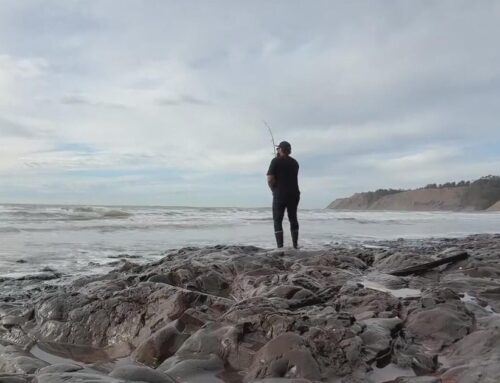The Meta Trial Shows the Dangers of Selling Out
April 25, 2025
Meta has a lot at stake in the current FTC lawsuit against it. In theory a negative verdict could result in a company breakup. But CEO Mark Zuckerberg once faced an even bigger existential threat. Back in 2006, his investors and even his employees were pressuring him to sell his two-year-old startup for a quick payoff. Facebook was still a college-based social network, and several companies were interested in buying it. The most serious offer came from Yahoo, which offered a stunning $1 billion. Zuckerberg, though, believed he could grow the company into something worth much more. The pressure was tremendous, and at one point he blinked, agreeing in principle to sell. But immediately after that, a dip in Yahoo stock led its leader at the time, Terry Semel, to ask for a price adjustment. Zuckerberg seized the opportunity to shut down negotiations; Facebook would remain in his hands.
“That was by far the most stressful time in my life,” Zuckerberg told me years later. So it’s ironic to observe, through the testimony of this trial, how he treated two other sets of founders in very similar situations to him—but whom he successfully bought out.
The nub of the current FTC trial seems to hinge on how US District Court judge James Boasberg will define Meta’s market—whether it’s limited to social media or, as Meta is arguing, the broader field of “entertainment.” But much of the early testimony exhumed the details of Zuckerberg’s successful pursuit of Instagram and WhatsApp—two companies that, according to the government, are now part of Meta’s illegal monopolistic grip on social media. (The trial also invoked the case of Snap, which resisted Zuckerberg’s $6 billion offer and had to deal with Facebook copying its products.) Legalities aside, the way these companies were upended by a Zuckerberg offer made the first few days of this case a dramatic and instructive study of acquisition dynamics between small and big business.
Though almost all of these narratives have been covered at length over the years—I documented them pretty thoroughly in my own 2020 account Facebook: The Inside Story—it was striking to see the principals testifying under oath about what happened. Hey, my sources were pretty good, but I didn’t get to swear them in!
In their testimony, star witnesses Zuckerberg and Instagram cofounder Kevin Systrom agreed on facts, but their interpretations were Mars and Venus. In 2012, Instagram was about to close a $500 million investment round, when suddenly the tiny company found itself in play, with Facebook in hot pursuit. In an email at the time, Facebook’s CFO asked Zuckerberg if his goal was to “neutralize a potential competitor.” The answer was affirmative. That was not the way he pitched it to Systrom and cofounder Mike Krieger. Zuckerberg promised the cofounders they would control Instagram and could grow it their way. They would have the best of both worlds—independence and Facebook’s huge resources. Oh, and Facebook’s $1 billion offer was double the valuation of the company in the funding round it was about to close.
Everything worked great for a few years, but then Zuckerberg began denying resources to Instagram, which its cofounders had built into a juggernaut. Systrom testified that Zuckerberg seemed envious of Instagram’s success and cultural currency, saying that his boss “believed we were hurting Facebook’s growth.” Zuckerberg’s snubs ultimately drove Instagram’s founders to leave in 2018. By that time, Instagram was arguably worth perhaps 100 times Zuckerberg’s purchase price. Systrom and Krieger’s spoils, though considerable, did not reflect the fantastic value they had built for Facebook.
The founders of WhatsApp did reap a stratospheric buyout, because in 2014 Zuckerberg threw $19 billion to acquire their then tiny operation. But, as told through testimony of some of its executives and funders, the acquisition hinged on promises that cofounders Brian Acton and Jan Koum would retain control. The WhatsApp cofounders hated advertising and were adamant that no ads should ever appear on their service. But documents introduced in the trial indicated that Facebook was basing its valuation on the premise that WhatsApp would be monetized, apparently with those despised ads. The founders left in 2018, when it became clear that Zuckerberg was calling the shots. “I espoused a certain set of principles, even publicly, to my users, and I said, Look, we are not gonna sell your data, we are not going to sell you ads, and I turned around and sold my company,” cofounder Brian Acton told me. His penance for this “crime,” he told me, was spending $50 million to create the Signal Foundation.
Though these founders were pressured to sell, there weren’t literal guns to their heads—and they did cash out in exchange for pursuing their dreams. So we shouldn’t feel too sorry for them. But lately people in Silicon Valley have been chattering about startup guru Paul Graham’s “Founder Mode” theory, which assumes that the person most responsible for creating a company is the best one to run it—and that the world itself benefits from such people. Zuckerberg, of course, is an iconic founder. But the trial is revealing a narrative beyond the FTC’s legal argument about anticompetitive acquisitions: Zuckerberg’s penchant for snuffing out founders to advance his own goals.
Of course, sometimes founders are well advised to take the money and run. Consider the case of Clubhouse, the audio-based social networking product that exploded during the pandemic. Its founders, Paul Davison and Rohan Seth, fended off multiple suitors, including a rumored $4 billion offer from Twitter. But after the pandemic—and some poor strategic choices—the service deflated like a punctured balloon. In 2023 it laid off half of its staff. On the other hand, it’s still around, and at least in one of its recent town halls, Davison still seemed to be having fun.
One question that Mark Zuckerberg did not have to answer during his testimony was how he viewed his own transition from prey to predator. But I did pose that question to him during my book research. We were discussing the mental anguish he suffered during the 2006 crisis. Zuckerberg told me that he often advises young founders not to give in to pressure. This advice, of course, was not offered to those running companies he wanted to buy. So I asked him directly—given his lesson from the Yahoo experience, did Systrom and Krieger make a mistake by selling to him?
There was a long pause, not an uncommon phenomenon when Zuckerberg considers a question where a candid answer might put him in a damning position. Finally he gave a response that dodged the issue, saying that Instagram could never have reached its heights without Facebook’s support. He said pretty much the same thing in court this month. On a legal basis, Meta will not be judged on how he bought off the dreams of founders, but whether he gamed the marketplace through his purchases. No judge will rule on the calculus of selling off a dream.
In Kevin Systrom’s testimony, he opined that Zuckerberg denied resources to Instagram in part out of jealousy. The photo-sharing app, which he didn’t invent, was growing faster than Facebook’s blue app, a Mark Zuckerberg Production. When reporting Facebook: The Inside Story, I became familiar with this tension and put it to Zuckerberg: Was he in fact jealous of the Instagram team?
“Jealous…” he repeated.
Yes, I said. And that you would prefer growth of Facebook’s Blue app to Instagram’s?
He said no, and explained to me how he thought about it. Early on … it made sense to leave the founders alone and let them build their best products. “That was incredibly successful,” he says. “And it made sense for the first five years. But now we’re at the point where all the products are big and important. I don’t want to build just multiple versions of the same product. We should have a more coherent and integrated product strategy.”
And if that meant losing founders, so be it. “I can understand if you’re an entrepreneur who built one of those things and had awesome success, you’d wake up and say, ‘Okay, I’m proud of what I did, but this isn’t for me going forward.’ That’s how I see it, and we’re going in the right direction.” Those close to Kevin Systrom, though, believe that had Zuckerberg not asserted control, he would have remained at Instagram for 20 more years.
Ask Me One Thing
Jim asks, “What was it like interviewing some of the pioneers of modern-day computing for Hackers?”
Thanks for the question, Jim. You are asking me to access the feelings I had over 40 years ago when I was talking first-hand to people who are now legends. But in the circles I traveled they were virtually unknown, even computer science pioneers like Marvin Minsky and John McCarthy. And to my knowledge no reporter had documented the world of MIT hackers, who pretty much invented computer culture.
I do recall as the interviews accumulated, I came to realize that the story I was telling was significant and would have continuing relevance. Also, some of them outright stretched my mind. These people were so interesting that after the book was published I kept talking to computer folk. I still am.
Submit your questions in the comments below, or send an email to mail@wired.com. Write ASK LEVY in the subject line.
End Times Chronicle
The Trump Administration pulls the plug on “environmental justice.” Happy Earth Day!
Last but Not Least
Who is DOGE? The US government isn’t saying.
Whoever DOGE is, it has access to a LOT of health agencies.
Search
RECENT PRESS RELEASES
Related Post






